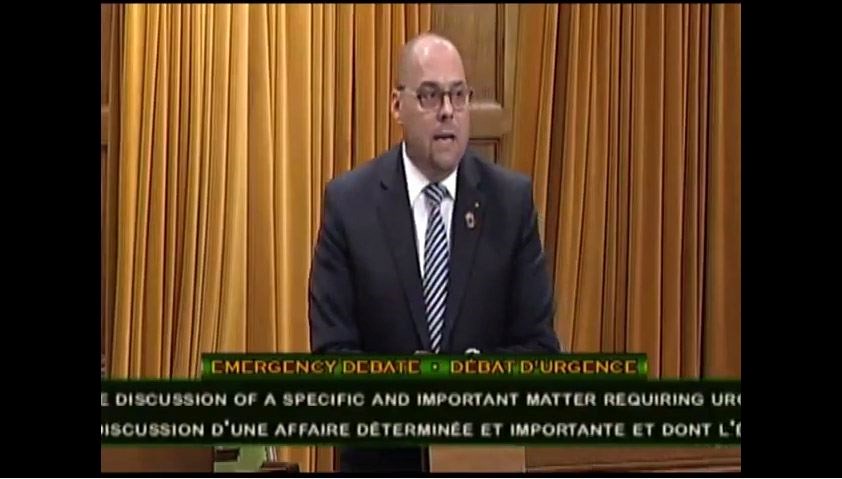The day after MP Todd Doherty delivered an emotional address to the House of Commons on the suicide crisis in Attawapiskat, his voice still shakes at the mention of its impact on his life and indigenous communities.
"The crisis that we're seeing right now in Attawapiskat, it's immediate, it's right now, it's happening and it is shocking," said Doherty, who stood several times during the six-hour emergency debate as Deputy Critic for Indigenous Affairs. "But it's not unique, sadly it's not unique. First Nation communities right across our country that are facing the very same crisis."
In his Cariboo-Prince George riding, too.
"I would say 100 per cent and it is absolutely heartbreaking," said Doherty, who said each deserves the same level of services the rest of Canadians have.
On Saturday, Attawapiskat's chief declared a state of emergency after 11 suicide attempts in April and a further 28 recorded attempts in March. On Monday, authorities thwarted a suicide pact among 13 youth, one only nine years old, from the same community.
For Doherty, who worked in suicide prevention and crisis intervention with at-risk youth and adults in B.C., the conversation Tuesday was very personal.
"There are things that I shared last night that I've never even shared with my kids so going into last night I was not, I don't think I thought it was going to open up those wounds as deeply as it did. Even now," he said, pausing. "It's tough."
"(Suicide) has definitely impacted my life and last night's debate just brought up those memories and maybe those feelings of grief and guilt that perhaps had been buried way down below," said Doherty.
He experienced that loss early, in a very dear high school friend who died by suicide. In his early twenties, Doherty would go into communities and schools and set up peer counselling and discuss prevention.
"I don't know how many people have ever had the experience of sitting across the way of a teenager or a first responder or somebody that feels their only lot in life or their only way of erasing the burden on their family or erasing the burden on society is by ending their own lives, and that just rips my heart out," he said.
"How do we get to this point where nine year old would have the rationale or understanding that this is the best way out?"
The indigenous affairs committee will meet Thursday, and there Doherty said he will push for his request for a special committee on the issue.
"My hope is that... everything that was said last night just wasn't words, that we're able to see action out of that and one of them is to get an all-party committee together."
At that same committee in March, the Conservatives asked it to study suicide among aboriginal people.
"We asked to study this specific topic, this systemic epidemic and we were turned down and now look where we're at," he said. "The sad thing is this isn't a new issue, successive governments. (Tuesday) night wasn't about pointing fingers at any one group. It was 'let's deal with the immediate crisis.'"
In his speech, Doherty commended the $8.4 billion Ottawa has set aside to deal with aboriginal issues, but criticized the five-year time-frame.
"We are only elected for four years. First Nations need funding certainty."
None of that funding is specifically earmarked for mental health, which Doherty said was a gap.
"There wasn't a mental health strategy that was really identified in any of that ($8.4 billion) until this discussion in the House," he said. "Number one we need a national strategy. There are organizations across Canada that are doing incredible things to combat suicide, mental health issues, PTSD, but they're all doing it independently."
Doherty said he wants to put partisan politics aside and hopes parliament can work together to make a difference.
"(Tuesday) night was a rough night. You saw vulnerability from all of the colleagues that were there. I think there were tears shed on all sides," Doherty said. "I hope they weren't shed in...futility. I hope there was action that drains out of it."



